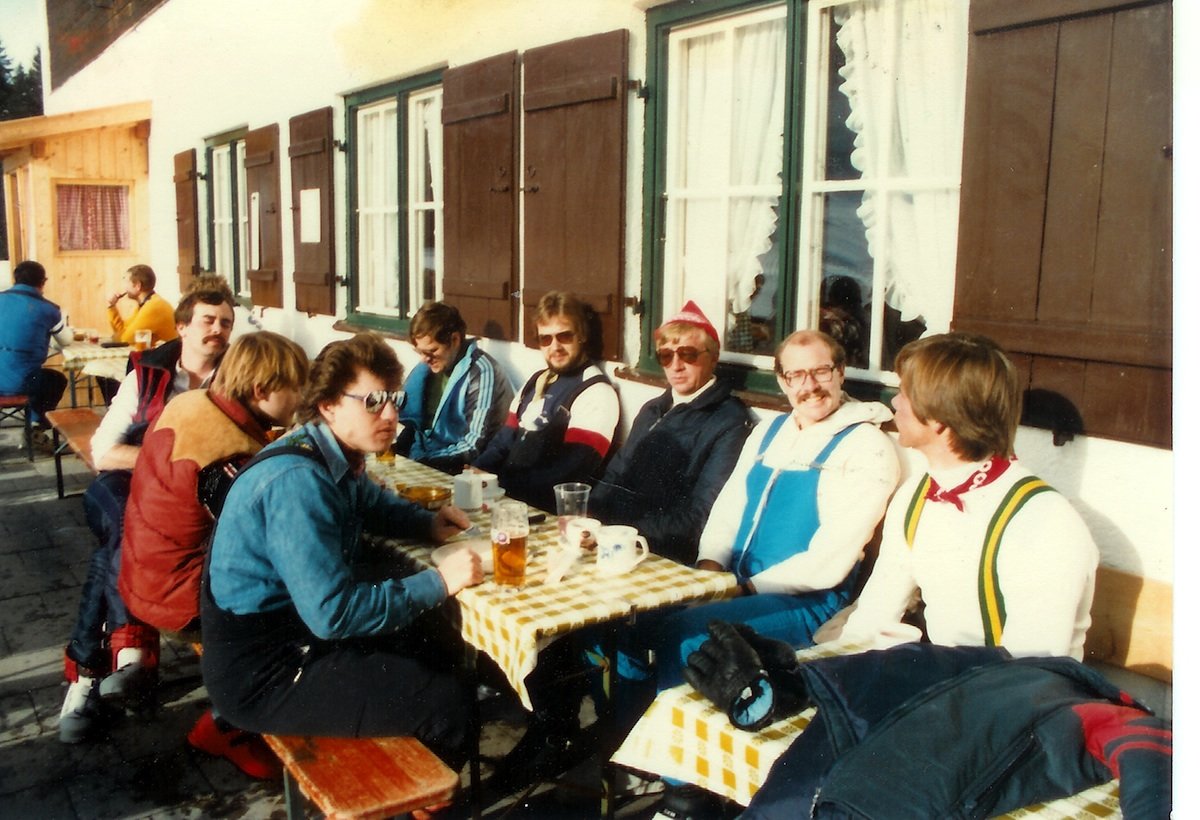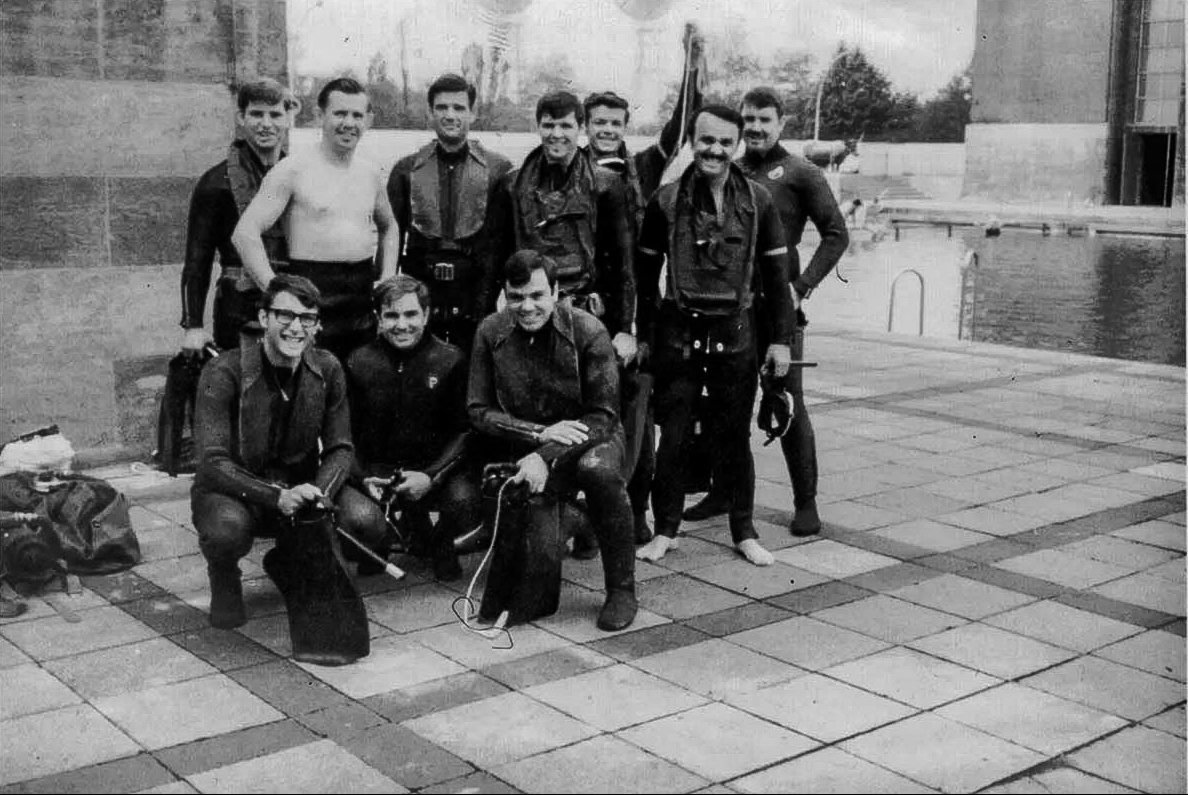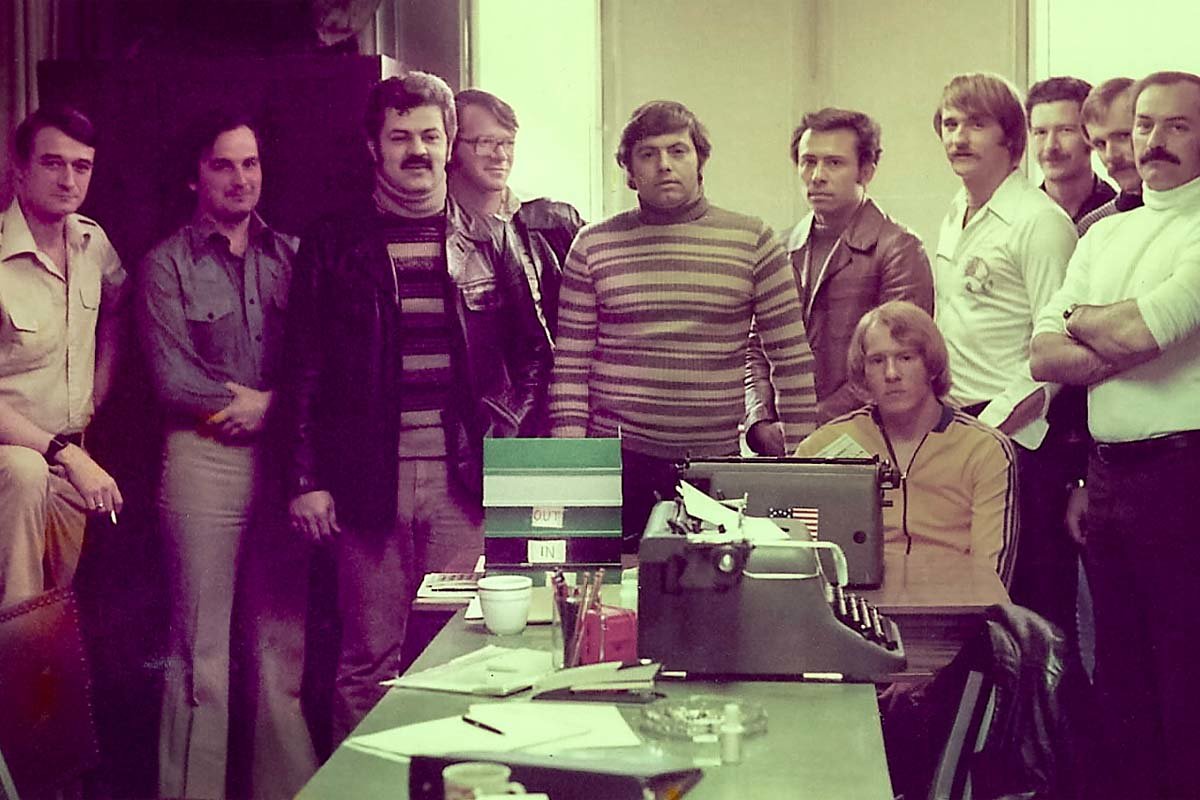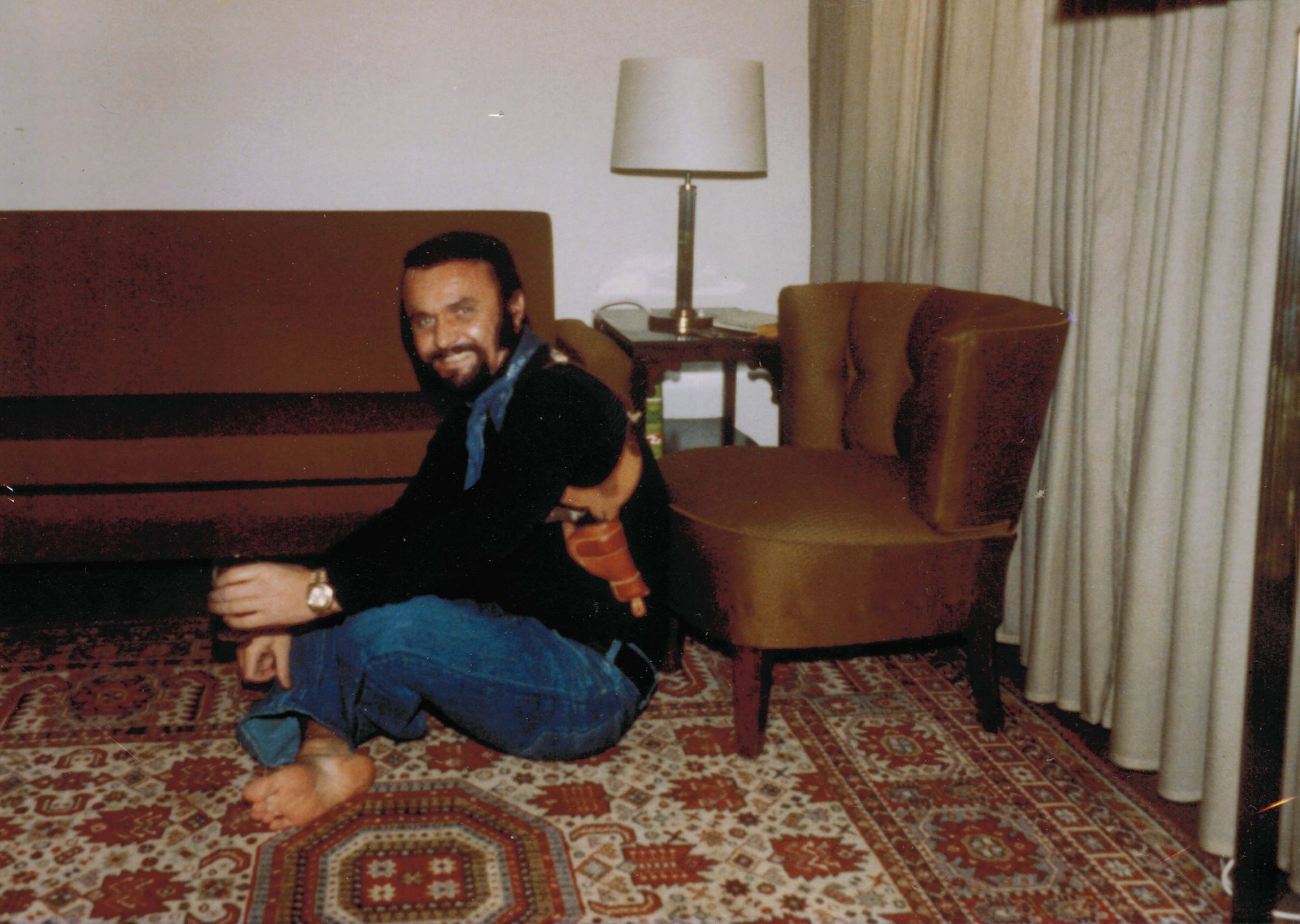Detachment-A: How Special Forces Soldiers Operated Undercover in Cold War Berlin

Detachment-A Team 2 in Garmisch, Germany, for “ski training.” Pictured: Peter Gould, Kevin Monahan, and others. Photo courtesy of detachment-a.org.
In September 1969, Bob Charest arrived in Cold War Berlin and reported to Detachment-A, a classified and clandestine US Army Special Forces unit that didn’t officially exist.
The senior communications sergeant would spend nearly all of the 1970s operating undercover and awaiting activation. Charest, a veteran of cross-border operations with MACV-SOG who spoke both German and Russian, understood the stakes at play. If Russia, one of the four divisional powers in Germany, launched an invasion to overtake all of Berlin, Charest and other Detachment-A members would activate and conduct “stay-behind” sabotage missions against strategic infrastructure and vital targets. Without an escape and evasion plan, the team hoped to stall Soviet advances long enough until NATO reinforcements arrived.
Although never activated to repel Russian invaders, Detachment-A remained busy, conducting around-the-clock undercover assignments from Allied-controlled West Berlin into Soviet-controlled East Berlin. West Berlin was considered “a small island of freedom locked inside Soviet-controlled East Germany.” These covert operations first began in 1956 when six Operational Detachment Alpha units (ODAs) and one staff element set up their station in Berlin. After three years, these teams reorganized into five mission task forces, each with compartmentalized priorities.

Since the teams operated independently, their undercover work required particular expertise a typical American might not consider. Through the Lodge-Philbin Act, many of the first Special Forces soldiers were foreign nationals born in Germany, Russia, Poland, Czechoslovakia, and elsewhere. Det-A put their expertise in customs, mannerisms, and culture to good use.
“I was a minority as an American,” Charest told Coffee or Die Magazine in a recent interview. “And these guys, they just wanted a chance in life to come back. There was some Waffen SS guys. One was my team leader, Capt. [Hermann] Adler. There was one of them that was in the largest tank battle in Russia, Martin Urich.”
These Lodge Act Green Berets taught Charest and other American-born soldiers to blend in and look like a local.
“The Europeans have a certain way of holding a cigarette when they smoke it,” Charest says. “And if you order a beer, you had a special way to use your hands to order a beer. If you stayed in a guesthouse or want a meal, there’s a certain way to eat that meal that the Europeans use; they don’t use a knife and fork like we do.”
Those mannerisms were basic and a necessity to learn. When the operators entered East Berlin, the tradecraft became more sophisticated. They had to be constantly alert to avoid picking up a tail from Soviet countersurveillance teams. The Special Forces soldiers communicated with live drops, or in-person meetings, and dead drops, a tactic involving a concealment device or location to exchange messages. Sometimes the messages were written as notes in invisible ink.

The Det-A teams also acquired safe houses through associates in the German community. They used Volkswagen vans and buses to get around and swapped the American license plates out for German ones when they wanted to recon the border. On one occasion in 1971, Charest and his team were scouting penetration areas through the Berlin Wall when authorities in the British sector arrested them. Although Charest’s team were only held for four or five hours until the Berlin Brigade informed the Brits who they were, if it had been the Soviets who had captured them, the consequences would have been much more severe.
Other penetration operations were more successful.
“There were a lot of canals in Berlin,” Charest, who served on Team One SCUBA, said. “We [could] infiltrate through the canals by scuba, which we tried and effectively did get in and out.”
Despite either training to stay efficient with Special Forces qualifications or working missions in and around Berlin, the ODAs rarely got together because of their compartmentalized tasks. There were a few exceptions, however, like four weeks of ski training in southern Germany and a social gathering called “Chicken Friday.” The skiing was a significant change of pace from being on high alert, 24 hours a day, every day. And Chicken Friday, held at Detachment A’s dayroom, gave the soldiers a chance to unwind.

“We had a specialized beer that we’d use; it was a Czechoslovakian ‘Budvar’ beer that we negotiated from a brewery that was downtown,” Charest said, adding that they also had a pool table and a bar they’d acquired through negotiations with a hospital.
At Chicken Friday, they welcomed guests from SEAL Team 2 stationed in Crete, other ODAs from 10th Special Forces Group attending their classified training course, and German secret police they knew from their missions. Ultimately, Chicken Friday became a big morale booster for the operators with Det-A, who could let loose every once in a while without fear of being compromised.
During the mid-1970s, Det-A’s mission changed to counterterrorism, with teams specialized in sniper and SWAT capabilities. Det-A even participated in Operation Eagle Claw during the Iranian hostage crisis by providing an element to conduct pre-mission reconnaissance in Tehran. Their mission, code-named Storm Cloud, contributed to the rescue of three hostages.
Before its deactivation in 1984, the unit was tasked by the CIA in 1978 with digging up old cache sites hidden around Berlin in case a stay-behind operation happened sometime in the future. It’s possible these sites remain active today.
Editor’s note: This article has been updated to reflect that no chicken was served on Chicken Friday. Chicken Friday was not held at the mess kitchen, but at Detachment A’s converted dayroom. The original members of Detachment-A were pulled from 10th Special Forces Group, but afterward Detachment-A became totally mission independent.
Read Next: How Immigrants Became Some of the First Green Berets

Matt Fratus is a history staff writer for Coffee or Die. He prides himself on uncovering the most fascinating tales of history by sharing them through any means of engaging storytelling. He writes for his micro-blog @LateNightHistory on Instagram, where he shares the story behind the image. He is also the host of the Late Night History podcast. When not writing about history, Matt enjoys volunteering for One More Wave and rooting for Boston sports teams.
BRCC and Bad Moon Print Press team up for an exclusive, limited-edition T-shirt design!
BRCC partners with Team Room Design for an exclusive T-shirt release!
Thirty Seconds Out has partnered with BRCC for an exclusive shirt design invoking the God of Winter.
Lucas O'Hara of Grizzly Forge has teamed up with BRCC for a badass, exclusive Shirt Club T-shirt design featuring his most popular knife and tiomahawk.
Coffee or Die sits down with one of the graphic designers behind Black Rifle Coffee's signature look and vibe.
Biden will award the Medal of Honor to a Vietnam War Army helicopter pilot who risked his life to save a reconnaissance team from almost certain death.
Ever wonder how much Jack Mandaville would f*ck sh*t up if he went back in time? The American Revolution didn't even see him coming.
A nearly 200-year-old West Point time capsule that at first appeared to yield little more than dust contains hidden treasure, the US Military Academy said.












